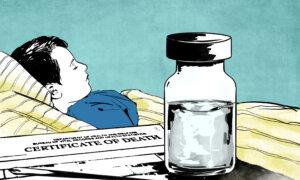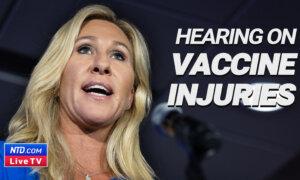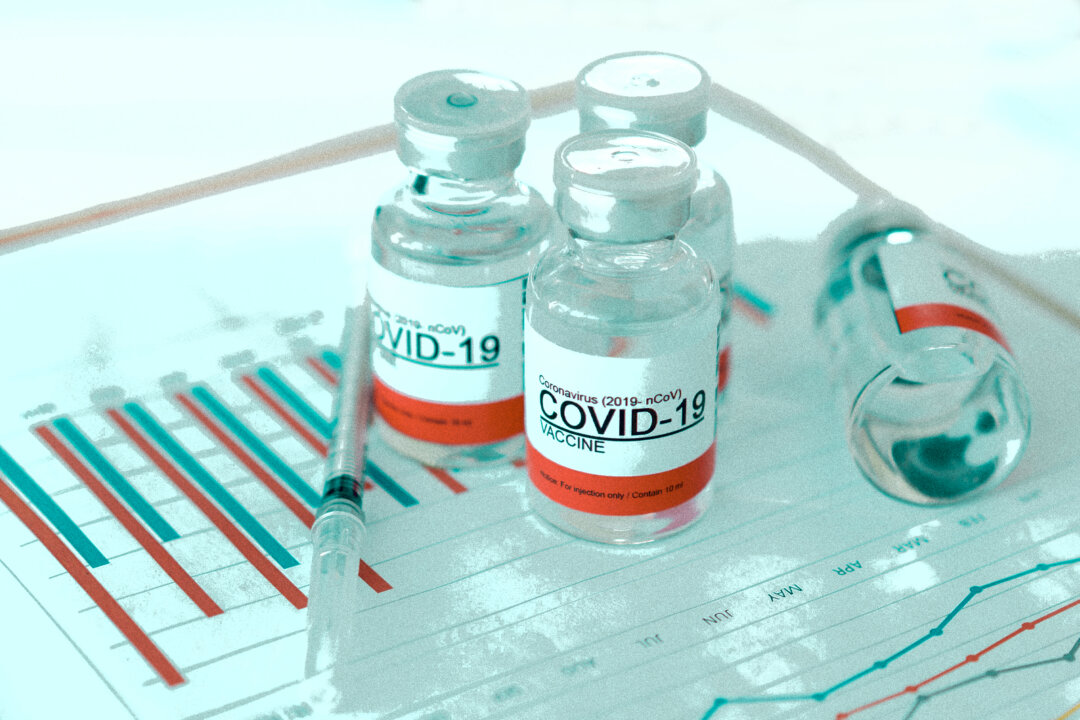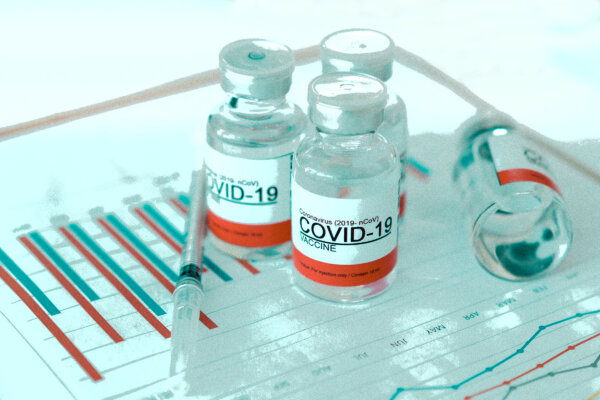‘Huge Discrepancy’ Exists in COVID Vaccine Adverse Event Data: Professor
A tenured professor’s survey suggests a much higher percentage of suspected vaccine adverse events reported compared to public health estimates.
There is a “huge discrepancy” between vaccine adverse events detailed in survey reports and those reported by public health agencies, observes Mark Skidmore, a tenured professor of economics at Michigan State University.
Recently, Mr. Skidmore published a paper that surveyed nearly 3,000 people and found that over 20 percent knew someone who suffered a health issue following the vaccine, while 34 percent knew someone who suffered a health consequence following COVID-19.
Mr. Skidmore said he was surprised by the much higher percentage of suspected vaccine adverse events reported compared to public health estimates.
According to the U.S. Centers for Disease Control and Prevention (CDC), vaccine adverse events are rare, and myocarditis, the most acknowledged adverse event, only occurs in 10 in 100,000 young males.
In the report, he highlighted that participants’ responses were only a reflection of their own perceptions, which may or may not be accurate. The health issues they observed did not necessarily mean the problems were related to COVID-19 or the vaccine.
“I was trying to be careful to indicate that these are perceptions but, at the same time, I think a lot of people’s perceptions are accurate, but not all,” Mr. Skidmore told The Epoch Times.
According to Mr. Skidmore, people’s experiences have a ring of truth and may shed some light on the actual extent of vaccine safety, even though public vaccine safety data are untransparent.
Major Survey Findings
The survey analyzed responses from over 2,800 respondents after omitting incomplete responses and those from participants who did not consent to have their responses used.
The survey sample was representative of the U.S. population, though the sample size was small. A representative sample means that the people surveyed reflect the general characteristics of the population in terms of sex, race, age, educational background, political affiliation, and so on.
Participants were asked about their experiences following COVID-19 and vaccination and whether they knew people in their social circle who experienced health issues following infection or vaccination.
Around half of the people surveyed were vaccinated against COVID-19, and about half of them reported experiencing some degree of adverse symptoms following vaccination. Among those who reported health issues, 205 were severe. However, the severity of health issues among people in their social circles was unknown.
“The health issues reported ranged from serious problems such as cardiac arrests and other heart-related problems, blood clots and other circulatory problems, to neurological issues, as well as milder effects such as feeling sick, headache, fever, etc.,” Mr. Skidmore wrote.
Participants were surveyed online in December of 2021.
Mr. Skidmore found that those already vaccinated or who knew someone who had developed health issues after COVID-19 infection were less likely to oppose vaccine mandates and passports.
Being a Republican was the characteristic most strongly linked to vaccine mandates and passport opposition, while identifying as Independent was the second most strongly correlated. The third most strongly linked factor was knowing someone who experienced health issues following vaccination.
Discordance Between Population Data and Survey Findings
As an economist, Mr. Skidmore has conducted surveys on health-related policies before; however, this may be the first time he has encountered such a notable discrepancy between survey findings and published population data.
“Sometimes in survey research, there’s a bit of discord between published data and survey, but my surveys, generally speaking, have had a fairly good matching between the overall population and what the survey is revealing,” Mr. Skidmore said.
“This is probably one of the most controversial things I’ve ever done. In this case, there’s a discrepancy; it’s just a huge discrepancy,“ he said. ”If people are having these experiences, and we’re told that they’re all wrong, that hardly anybody has any vaccine adverse events—well, what is the truth? I’m willing to ask that question.”
Prior Backlash for Vaccine Death Estimates
Mr. Skidmore caught backlash from a previous paper based on the same study.
Those who knew someone who experienced health problems from COVID-19 were more likely to be vaccinated. In contrast, those who knew someone who experienced health problems following vaccination were less likely to be vaccinated.
Mr. Skidmore’s survey found that 57 respondents reported knowing someone who had died following vaccination, while 167 individuals knew someone who died following COVID-19.
By dividing the 57 suspected vaccine deaths against COVID-19 deaths, Mr. Skidmore obtained a ratio of 0.345, significantly higher than the CDC’s 0.0096 ratio at the time.
Mr. Skidmore’s ratio indicates that for every three COVID-19 deaths, there would be one vaccine-related death.
He estimated that if his survey was a true reflection of the U.S. population, then there could be up to 287,000 deaths from the COVID-19 vaccine.
“It’s never been clear to me what they thought I did that was unethical,” Mr. Skidmore said. “I did the standard procedure that would serve any kind of survey research. I asked my university’s approval through the Institutional Review Board to conduct the survey, and they said, ‘Yes, that’s fine.’
“It was a seven-month process, but finally, the university decided that, indeed, I have not done anything wrong.”
After the complaint was resolved and the paper republished, Mr. Skidmore continued working on the same survey and published another paper on its findings in January 2024.
This article has been archived for your research. The original version from Epoch Times can be found here.






